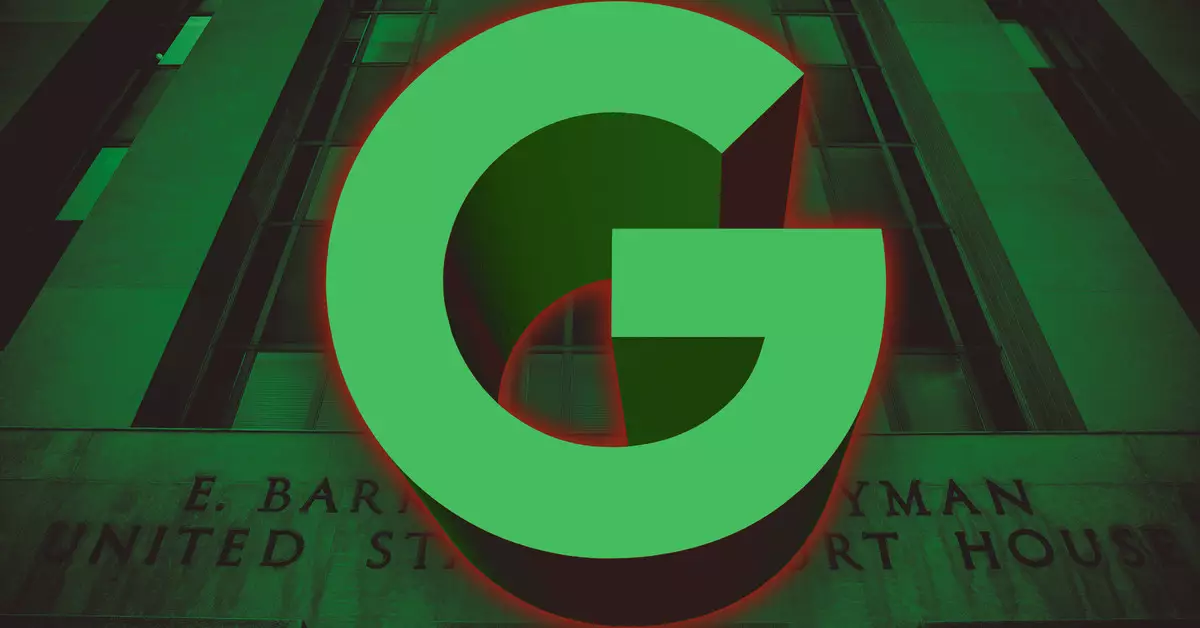As technological giants increasingly dominate our digital landscape, the scrutiny surrounding their practices intensifies. The Department of Justice (DOJ) has set its sights on Google, accusing the tech behemoth of illegal antitrust behaviors that stifle competition in the search engine market. Google, under the pressure of potential dissection of its business model, has presented its own set of remedies aimed at appeasing the regulators. This dynamic, however, raises critical questions about the efficacy of such proposals and the implications for both consumers and the tech industry at large.
In a bold move, Google’s legal team has designed a series of proposals that differ significantly from the DOJ’s recommendations, which included a potential breakup of its services like Chrome, Android, and Google Play. Instead of divesting these components, Google proposes alterations to its partnerships, particularly the lucrative contracts it holds with entities like Apple and Mozilla. These arrangements allow Google to secure preferred placements for its services—a practice under fire for potentially restricting market access for competitors.
Google’s regulatory VP, Lee-Anne Mulholland, emphasized that their proposed remedies were directly responsive to issues concerning the search distribution contracts. One of the more intriguing aspects of these proposals is a commitment to block certain types of agreements for a three-year period, essentially putting a temporary hold on bundling licenses for Chrome and Google Search with other services. This could open the door for greater competition in the browser market, yet it simultaneously highlights a reluctance to sever deeper ties with these platforms entirely.
Critics of Google’s strategy argue that while the proposed measures appear to offer a concession, they fall short in addressing the root of the issue—its monopolistic practices. The DOJ’s suggestion for Google to share its valuable search data has been notably absent from Google’s agenda. By not committing to data transparency, Google misses an opportunity to foster fair competition, an essential element for a vibrant market landscape.
Furthermore, the allowance for Google to continue paying for default search placements raises concerns regarding the long-term sustainability of genuine competition. If competitors cannot gain equitable market access or visibility, Google’s monopoly could persist, albeit under different guises. The requirement to review deals annually may prove futile if the core dynamics of power—financial resources and market dominance—remain unchanged.
With a two-week trial looming in April, the future of Google’s market position hangs in the balance. The company plans to submit a revised proposal by March 7th, but the effectiveness of such moves will ultimately depend on the willingness of regulators to enforce true accountability. The discussions surrounding Google’s practices compel us to consider what a fair digital marketplace should look like and how we can ensure competition thrives in an age where tech giants have unprecedented influence.
As digital consumers and stakeholders grapple with the implications of these developments, the outcome could significantly redefine the landscape of technology, competition, and consumer choice for years to come. It serves as a reminder that in the quest for innovation, we must equally champion the values of fairness and opportunity, leaving a balanced ecosystem for future technological advancements.

